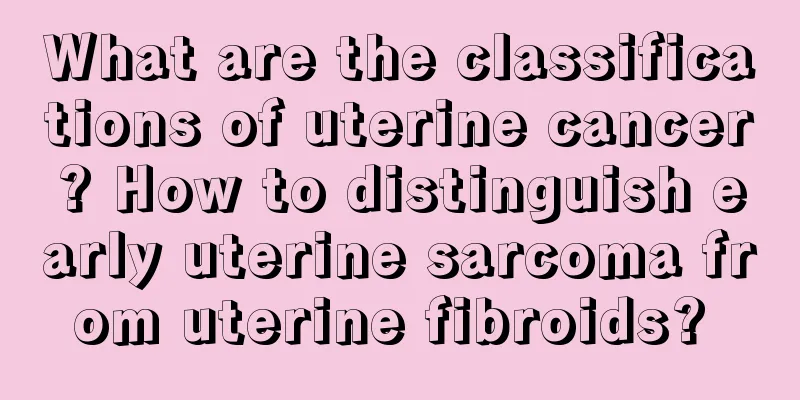What are the principles of fibroid treatment

|
What are the principles of fibroid treatment? In life, when we face diseases, in addition to worrying about not being able to be completely cured, we are also worried about whether the treatment will bring side effects. Therefore, we must follow certain principles during the treatment process. So today we will take a look at what are the principles of fibroid treatment: Fibromas are composed of well-differentiated subcutaneous connective tissue. They are common in adults aged 40-50 years. They grow slowly and generally stop growing after they develop to a certain size. Fibroids, especially desmoids in the abdominal wall muscles, can become malignant and should be completely removed as soon as possible. 1. Desmoid tumor Most of them are round and hard, with dry cut surface, white or yellowish white, and the fiber bundles can be vaguely seen in cross section and longitudinal section when carefully observed. Desmoid tumors not only have more glial fibers, but also the nuclei of connective tissue cells are mostly spindle-shaped. 2. Soft fibroma The cut surface is spongy, with many blood vessels and often edema. The lymph fluid contained can coagulate into a gelatinous state, with few colloid fibers and loosely arranged cells. The appearance of fibroids on the skin is round or oval, with a good shape. Ulcers and secondary infections may occur on the surface, and they appear homogeneous grayish white. Treatment principles: Fibroma should be surgically removed at an early stage, and the surrounding tissues should be appropriately removed. Desmoid tumors should be extensively removed at an early stage. Pathological examination should be performed after surgery to exclude malignancy, and medication is generally not required. Treatment methods: 1. Benign fibroma: surgical resection and send for pathological examination. 2. Fibromatosis: Fibromatosis growing in areas susceptible to pressure and friction can be removed and then pathologically examined. 3. Desmoid tumor: local extensive resection, including complete resection of the tumor and the surrounding 3 cm tissue, and skin grafting, otherwise it is very likely to recur. Although fibroma is a benign tumor, it may also become malignant, especially if the tumor grows rapidly or the patient is older, has a long course of disease, or has relapsed multiple times. In this case, you should be vigilant, seek medical attention in time, and prevent changes in your condition. |
<<: What are the commonly used drugs for treating fibroids
>>: What is the best way to treat fibroids
Recommend
Are you afraid of cold due to wind-heat cold? What are the symptoms
Wind-heat cold is a traumatic cold, which is main...
My scalp hurts from pulling my hair
Hair loss is a very bad phenomenon. Many people i...
Do you know what you can’t eat for acute appendicitis?
I believe everyone is familiar with appendicitis,...
Is jock itch contagious?
Tinea cruris is actually a common skin disease, a...
Skin allergies on face? These relief tips are simple and easy to learn
For every woman, skin problem is the most importa...
Myeloperoxidase is high
In our lives, many people suffer from immune dise...
What are the causes of gastric cancer
In recent years, gastric cancer has become one of...
What is ichthyosis variegated and how to prevent it
Do you know of a disease? . It is called ichthyos...
What material is good for cutting board? Teach you how to choose cutting board correctly
The colored cutting board is a tool that people a...
Can white vinegar cure hemorrhoids?
Hemorrhoids are not unfamiliar to office white-co...
How to get rid of ugly forehead wrinkles?
Wrinkles on the forehead are a concrete manifesta...
What is the best way to quit smoking and drinking?
Smoking and drinking are not unfamiliar to many p...
Methods to prevent wound suppuration during normal childbirth
Many pregnant women will have torn wounds in thei...
How to remove black vertical lines on fingernails
Black vertical lines often grow on fingers. Black...
The most important preventive health care for several major lymphomas
The occurrence of lymphoma is extremely harmful t...









